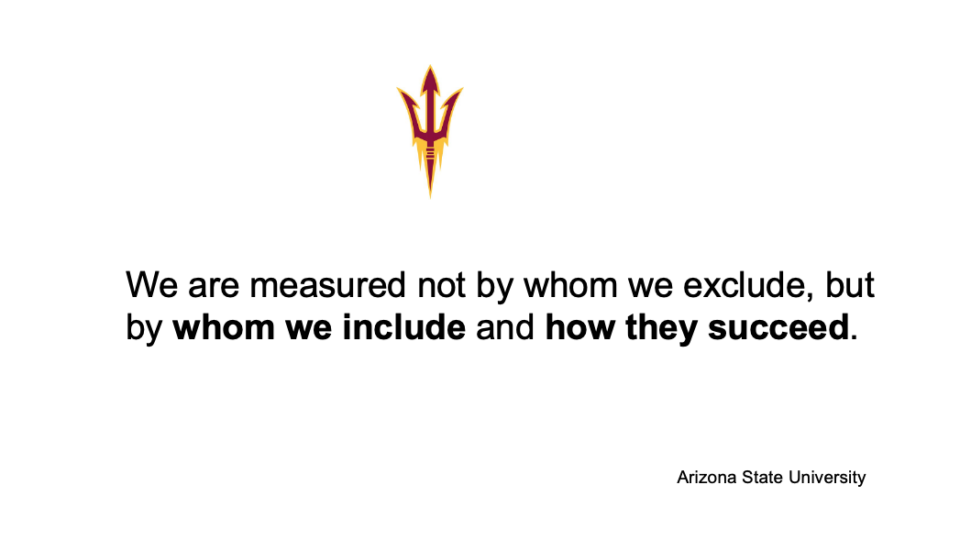
Striving for Equity, Inclusion, and Student Success in Online Course Facilitation
Built into ASU’s charter is measuring our success “not by whom we exclude, but rather by whom we include and how they succeed”. As an Instructional Design team for Edplus, we share the incredible opportunity with faculty to help provide equitable, inclusive, and supportive learning experiences for students.
Recognizing that great faculty will always be the key to an exceptional learning experience, we strive to promote research-based practices for both course design and facilitation. It’s clear that even after a course is designed, the course facilitation practices selected by faculty greatly determine the level of student success and satisfaction.
We’ve recently revised the best practices that we promote for course facilitation to incorporate several recommendations from the award-winning Peralta Online Equity and Inclusion rubric. By reviewing standards used by multiple institutions and specifically the Online Equity Rubric, we’ve been able to develop a list of recommendations that can greatly improve the learning experience for students through facilitation.
Our enhanced list of ASU Online Best Practices for Teaching Online includes a variety of facilitation practices related to:
- Welcoming Students
- Creating Supportive Instructor Presence and Positive Communications
- Providing Helpful Feedback and Timely Grading
- Supporting Thoughtful Discussions and Group Work
- Applying Strategies to Increase Student Retention and Success
- Strengthening Technical Skills and Leveraging Available Supports
These practices are listed with additional annotations to provide various examples and approaches to support implementing the various recommendations in courses. We also promote these during our webinars and workshops, such as the Master Class for Teaching Online, posts on TeachOnline, and the “10 Minutes for Excellence” self-paced modules made available to faculty from within the ASU Online Faculty Center.
- For ASU Online Faculty Who Teach O-courses
Link to full ASU Online faculty doc with Best Practices and annotations accessible within the ASU Online Faculty Center in Canvas
or request enrollment for ASU access - For Other Guests
Link to List of ASU Online Best Practices for Teaching Online
We also promote the ASU Online course design standards that promote quality, equity, and inclusion. As with any online course, we recognize the need for continuous improvement. We will work to improve and enhance this list of best practices as we continue to strive toward increased equity, inclusion, and success for all students.
Co-authored with Meredith Savvides and DeAnna Soth. Editors include Justin Harding and Renee Pillbeam
Leave a Comment
Your email address will not be published. Required fields are marked *